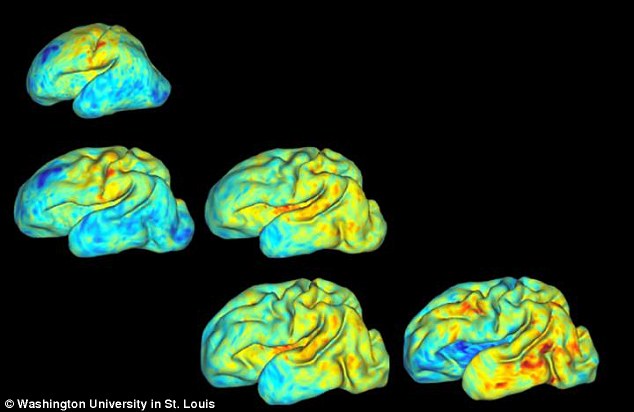Scientists keep developing new ways of detecting potential future health problems in unborn babies.
Prenatal tests have become increasingly accurate; 3D ultrasounds give doctors a better picture of the baby’s physical development. And now researchers are examining how babies’ brains develop as a way to possibly detect future mental health disorders, such as autism and schizophrenia.
The Daily Mail reports a team of researchers at Washington University in St. Louis studied the brain development of 30 premature babies.
The team used 3D MRI scans and developed a computer algorithm to analyze the babies’ brain development, according to the report. Brain analysis is incredibly difficult because every person’s brain fold pattern is unique, much like their fingerprints, the researchers said.
“One of the things that’s really interesting about people’s brains is that they are so different yet so similar,” said Professor Philip Bayly, a lead researcher on the project. “We all have the same components, but our brain folds are like fingerprints: everyone has a different pattern.”
He said the process of folding may hold the clues needed to detect later problems with brain development.
Here’s more from the report:
This algorithm allowed the scientists to study ‘point-to-point correspondence between younger and older cortical reconstructions of the same infant,’ the report said.
‘From each pair of surfaces, the team calculated precise maps of cortical expansion. Then, using a minimum energy approach to compare brain surfaces at different times, researchers picked up on subtle differences in the babies’ brain folding patterns,’ the analysis said.
Electronics 360 reports more:
Doctors believe that understanding the brain pattern and development could be a huge tool in diagnosing issues later in a baby’s life.
Follow LifeNews.com on Instagram for pro-life pictures and the latest pro-life news.
“You do also find folding abnormalities in populations that have cognitive issues later in life, including autism and schizophrenia,” Bayly said. “It’s possible if medical researchers understand better the folding process and what goes on wrong or differently, then they can understand a little bit more about what causes these problems.”
Their research was published in “Proceedings of the National Academy of Sciences.”
Diagnostic tools can be helpful in planning future treatments for unborn babies and preparing their parents to care for their unique needs. However, some worry that these tools could lead to more abortions. Unborn babies with disabilities already are targeted for abortions at astronomical rates. And with major news outlets embracing eugenic abortions and a number of medical professionals encouraging them, some pro-life advocates fear the deadly trend could grow worse.








